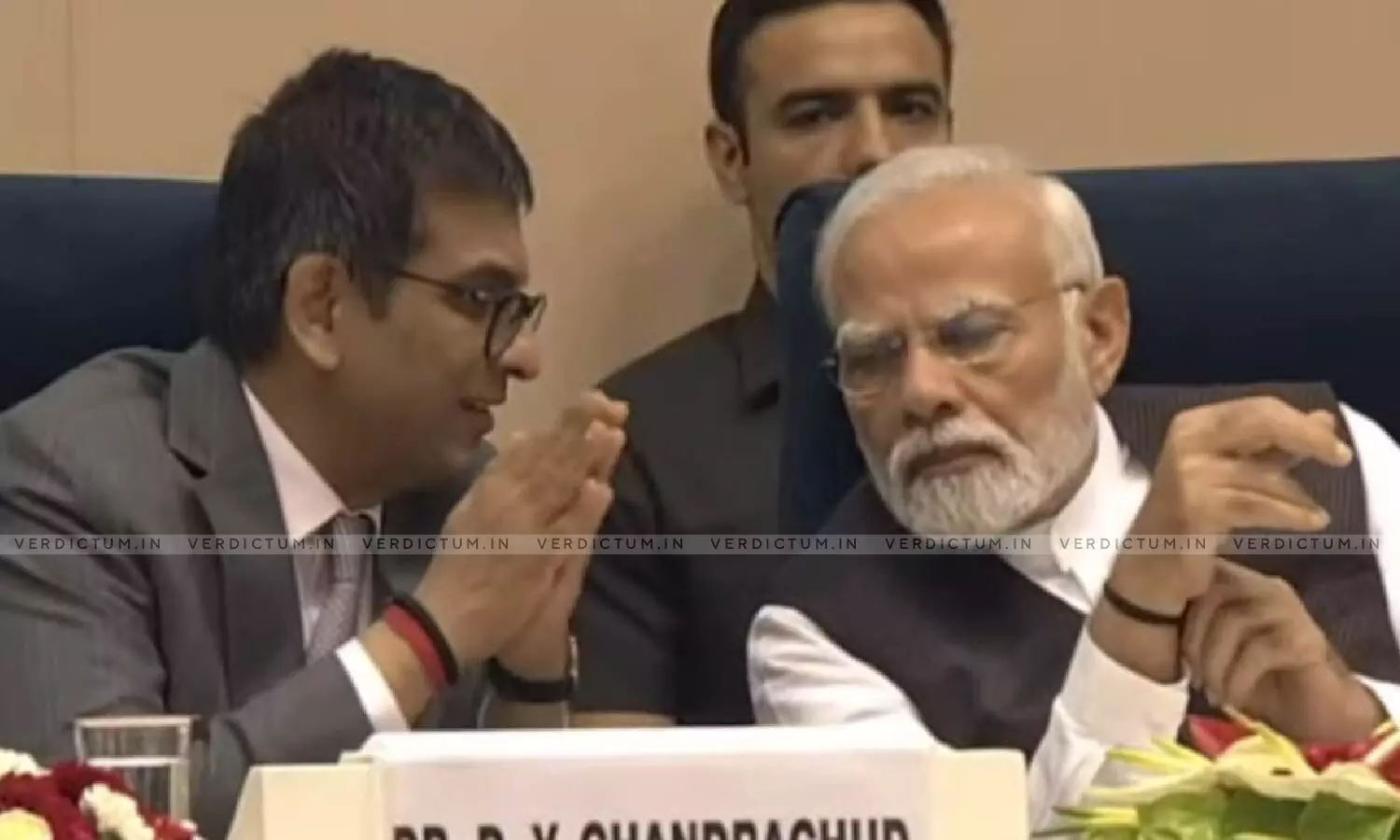
Cabinet Approval Of Phase III Of E-Courts Projects With Financial Outlay Of ₹ 7000 Crore Is Perfect Example Of Institutional Collaboration For Accessible Justice: CJI Chandrachud
 |
|While speaking at the inaugural session of the International Lawyers Conference in New Delhi today, Chief Justice DY Chandrachud said that cabinet approval of the eCourts Project Phase III with a financial outlay of Rs.7210 crore is a perfect example of institutions collaborating to make justice more accessible, affordable and transparent.
The Union Cabinet approved the project last week. "With the Cabinet approval of eCourts Project Phase-III, we are ushering in a new era of justice delivery in India. Integrating advanced technology will make our judicial system more accessible and transparent,” the Prime Minister had announced on social media.
The CJI said that immediately after the conference, he is meeting the entire team of the Department of Justice to discuss implementation of the project.
The Conference was organised by the Bar Council of India and the Union Law Minister, Attorney General and the Solicitor General of India, among others, spoke during the session, apart from CJI Chandrachud and Prime Minister Narendra Modi.
The CJI talked about the global engagement with the judiciary of various countries. "Indeed nothing explains this push towards engagement across nations better than the slogan for the recently concluded G20 Sumit 'Vasudhaiva Kutumbakam', the world is but one family", the CJI said.
The CJI then spoke about engagement with institutions within the country. "While the Constitution provides for separation of powers between the legislature, the executive and the judiciary, it also creates a space for institutions to learn from each other and deliver justice. In our tendency to emphasise differences, we often forget the abundant examples of collaboration between institutions to further the interest of justice", Chief Justice Chandrachud said.
While quoting from a judgment that quoted Blaise Pascal, the CJI said, "Justice without power is inefficient. Power without justice may be tyranny. Justice and power must therefore be brought together so that whatever is just may be powerful and whatever is powerful may be just". He gave an example of the "spirit of collaboration between the court and government" in the case that is presently being heard by the Constitution Bench relating to driving licenses.
He said that just like the case of Justice Ruth Bader Ginsburg and Justice Antonin Scalia, "there is often a variety of view point and perspectives between my colleagues on the bench and me. But that is why we are a National Court. However, when the day comes to a close, we come together and share a movement of comradery. This idea of friendship beyond differences may seem light hearted. However, it plays a pivotal role in fostering mutual respect for each other's perspective and in acknowledging that there is always something to learn from each other". He said that a bipartisan effort has gone into passing of the Women's Reservation Bill in the Parliament.
Prime Minister Narendra Modi while speaking during the event stressed the importance of the use of simple language in laws that ordinary citizens can understand. "They should feel that the law is theirs", he said.
As per the Ministry of Law and Justice, the e-Courts Phase-III aims to usher in a regime of maximum ease of justice by moving towards digital, online and paperless courts through digitization of the entire court records including legacy records and by bringing in universalization of e-Filing/ e-Payments through saturation of all court complexes with e-Sewa Kendras. It will put in place intelligent smart systems enabling data-based decision making for judges and registries while scheduling or prioritizing cases. The main objective of the Phase-III is to create a unified technology platform for the judiciary, which will provide a seamless and paperless interface between the courts, the litigants and other stakeholders.
Out of the more than Rupees 7000 crores, 2038 crores is proposed to spent on scanning, digitization and digital preservation of case records. 1205 Crore Rupees is proposed to spent on Cloud Infrastructure and 643 Crores on additional hardware to existing courts. 426 Crores will spent on infrastructure in newly set up courts. 413 Crores will spent on Virtual Courts and 394 on eSewa Kendra.